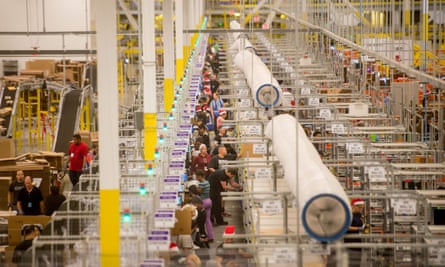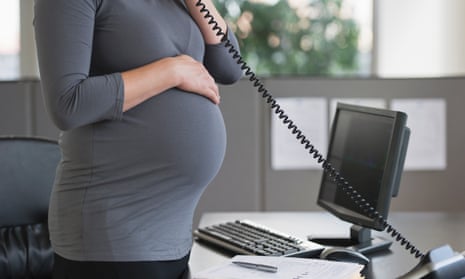Jennifer, a family nurse practitioner in Texas, told her employer a few months into the Covid-19 pandemic that she was pregnant and requested changes to her work to limit her exposure to Covid-19.
But it didn’t work.
“Out of the blue, when I was about seven months pregnant, my employer reassigned me from a low-risk area with low exposure risk, to a high-risk area,” said Jennifer, who requested to withhold her last name due to privacy concerns. “I made it very clear to them that I wanted to continue working, that I just needed safety measures to prevent me from getting ill, and they were actually less safety measures than they had given a male doctor that I worked with who had an autoimmune condition.”
Instead of providing her with accommodations to her work that would reflect her pregnancy, her managers held a meeting at which Jennifer claims she was told she was no good to them pregnant, and that she should take unpaid family medical leave as she was going to be replaced by a non-pregnant worker. She had worked at the employer for five years.
“I went home that night and I just cried,” she added. “I had no idea what I was going to do because I was actually a high-risk pregnancy and needed health insurance.”
Due to the pandemic, Jennifer’s husband wasn’t working as often, and her family relied on her income and health insurance. At seven months pregnant during the first few months of the Covid-19 pandemic, leaving to find another job wasn’t immediately an option.
She was able to receive a note from her OB/GYN confirming to her employer that her pregnancy was high-risk, and demanded accommodations under the Americans with Disabilities Act. Though her employer provided some accommodations in response, she still felt exposed to Covid-19 at work. After her pregnancy, Jennifer opted to find another job, despite taking a pay cut to do so, for fear she would be forced out or intimidated from her position in retaliation by her employer.
Jennifer is far from alone in America.
According to a recent research brief conducted by the legal advocacy non-profit, A Better Balance, approximately two-thirds of pregnant workers are being denied work accommodations under current federal law, either forcing these workers out of their jobs or putting them and their pregnancy at risk.
Under the Americans with Disabilities Act, pregnant workers with medical needs, but not disabilities, are left unprotected to prevent pregnancy complications. The burden is placed on individual pregnant workers to prove someone else in their workplace received similar accommodations in order to receive them.
The Covid-19 pandemic has further exposed the issues facing women in the workplace, including a lack of any mandated paid maternity leave, high childcare costs and a lack of access to childcare, and women, particularly women of color, have been disproportionately affected by job losses and jobs recovery for women.
In September 2021, more than 300,000 women in the US left the workforce. More than 26,000 jobs were lost in September 2021 for women, while men gained 220,000 jobs. The wage gap between men and women through 2020 was 83 cents to $1, with Black women paid 64 cents for every dollar paid to white men, and Latino women paid 57 cents for every dollar paid to white men. Over 12.6 million women and girls in the US had no health insurance coverage through 2020.
Federal legislation to require employers to provide reasonable accommodations to employees for pregnancy, childbirth and related medical conditions, the Pregnant Workers Fairness Act, passed in the House of Representatives in May 2021 with bipartisan support, but has not yet received a vote in the Senate.
“We need one clear, federal standard to ensure that all pregnant workers are entitled to this basic protection,” said Dina Bakst, co-founder and co-president of A Better Balance. “Far too many have been and continue to be forced off the job because their employers refuse to provide them the modest accommodations they need to stay healthy and the pandemic has exacerbated the dire nature of this situation.”
In a recent report published by the National Women’s Law Center, the most common occupations for pregnant workers, registered nurses, teachers, cashiers, retail workers, servers, are often low-paid and require physically demanding job duties. Black and Latino pregnant workers are disproportionately in low-paid jobs where workers are forced to stand for long periods of time, make repetitive motions and are exposed to disease or infections.

Elizabeth Rocha worked at an Amazon warehouse in Tracy, California, when she found out she was pregnant in March 2016. Due to morning sickness and the physically demanding nature of her job, she informed her management immediately. Two weeks into working, she was pushed to take an unpaid leave of absence to get medication for morning sickness.
As her pregnancy progressed, Rocha requested to be stationed near a restroom, but management didn’t move her. Then she started getting written up for time off task because she was using the restroom frequently, and she was constantly forced to stow heavy items.
She tried to obtain a stool to help her stow items, but was told a different department needed it more, and her requests to have her rate lowered were dismissed. Two weeks before she was scheduled for maternity leave, her accommodation for a 10-minute bathroom break once an hour was finally approved, but she was put on a stowing station with heavy, bulk items like gaming systems, cat litter and fertilizer.
After returning from maternity leave in early 2017, Rocha was eventually fired due to too many write-ups for missing her rate.
“I thought I was having trouble because it was my first pregnancy and I didn’t know what to expect, so I didn’t want to cause too much trouble or ask for too much,” said Rocha. “At about four months in the pregnancy and on I would only get sick on the days that I would work. I know now that was due to stress and anxiety from fear of being written up and fired.”
